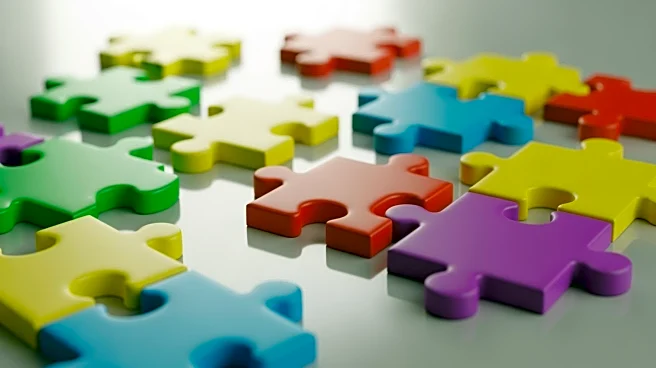What's Happening?
A series of 'No Kings' protests took place across the United States, with participants expressing concerns over perceived threats to democracy and government actions. The protests, characterized by a tone of good-natured indignation, saw thousands of people
gathering in various locations, including upstate New York and New York City. Protesters carried signs referencing historical patriotic events and expressed dissatisfaction with the current administration. The rallies were peaceful, with no reports of violence or arrests, and were marked by a display of patriotism and a call for a return to basic decency in governance.
Why It's Important?
The 'No Kings' protests reflect a growing sentiment among certain segments of the American population who feel that the current administration's policies threaten democratic values and societal norms. These protests serve as a reminder of the public's desire for accountability and transparency in government actions. The peaceful nature of the rallies underscores the participants' commitment to expressing their views without resorting to violence, highlighting the importance of civil discourse in addressing political grievances. The movement could potentially influence public opinion and policy discussions, emphasizing the need for leaders to consider the concerns of their constituents.
What's Next?
The future of the 'No Kings' movement remains uncertain, as it currently lacks a formal political platform or leadership. However, the widespread participation in the protests suggests that there is significant public interest in addressing the issues raised. As the movement gains traction, it may prompt further discussions among political leaders and policymakers about the direction of the country's governance. The administration's response to these protests could also impact its relationship with the public and influence upcoming electoral outcomes.
Beyond the Headlines
The 'No Kings' protests highlight deeper societal issues, such as the generational divide in perceptions of democracy and governance. Younger generations, who have grown up in a time of political cynicism, may view these protests as an opportunity to engage with older generations and challenge the status quo. The movement also raises questions about the role of patriotism in modern America and how it can be used to unite rather than divide the population.
















